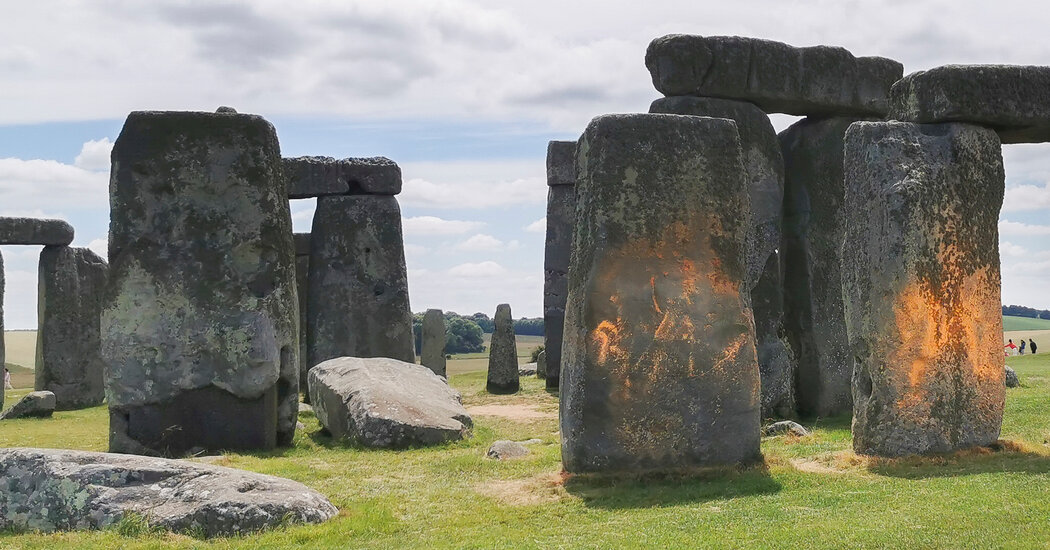Two climate activists were arrested in England after they sprayed an orange powder on the monoliths at Stonehenge in what they said was an attempt to bring attention to the climate impact of fossil fuels. The attack on the prehistoric site came on Wednesday as the stones would draw the attention of people marking the arrival of the summer solstice in the Northern Hemisphere.
The organization that oversees the Stonehenge prehistoric site in England said on Thursday that it had removed the bright orange powder ahead of preparations for the important day at the site.
There appeared to be no visible damage to the stones, according to Nick Merriman, the chief executive of English Heritage, a charity that manages Stonehenge. But, he said in a statement, “that’s in no way saying there hasn’t been harm, from the very act of having to clean the stones to the distress caused to those for whom Stonehenge holds a spiritual significance.”
The powder was removed quickly out of fear that it could damage the rare lichen that grows on the ancient stones, or that exposure to water could turn the colored powder into streaks, potentially causing permanent damage, English Heritage said.
The police in Wiltshire, England, said that officers had arrested two people who used fire extinguishers to spray the orange powder at Stonehenge on Wednesday.
In a statement, Just Stop Oil, a British group that wants to prevent new oil and gas licensing, said it had “decorated” Stonehenge with powder paint and demanded that the next British government work with other governments “to end the extraction and burning of oil, gas and coal by 2030.”
The site was chosen to draw as much attention as possible, said Ben Larsen, a Just Stop Oil protester and a supporter of the organization. “Look what our ancestors left us 5,000 years ago: this beautiful monument,” he said in a phone interview. “What are we leaving to our descendants?”
The summer solstice, which was taking place on Thursday, is the longest day of the year in the northern hemisphere, and one when most of Britain sees about 17 hours of daylight. It is also an important day in the religious calendar of the spiritual movement known as Druidry.
Every year, thousands of people flock to Stonehenge to watch the short night turn into day. It is one of the few days where the roped barriers that traditionally keep people from the almost 5,000-year-old stones are removed.
Adrian Rooke, a practicing Druid, said the act of vandalism…
Click Here to Read the Full Original Article at NYT > Travel…
